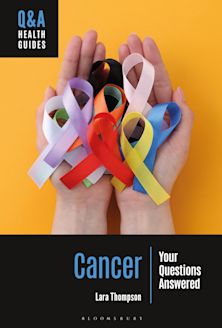- Home
- ACADEMIC
- Nursing, Health & Medical
- Nursing and Health - Other
- American Plagues
This product is usually dispatched within 3 days
- Delivery and returns info
-
Free CA delivery on orders $40 or over
You must sign in to add this item to your wishlist. Please sign in or create an account
Description
Smallpox, yellow fever, malaria, and polio, fearful diseases that once beset Americans, are now largely, just unhappy history. Yet from our confrontations with these past plagues come lessons that inform today’s struggles to understand and remedy problems like HIV/AIDS, coronary heart disease, and Ebola infection. American Plagues weaves stories of encounters with epidemics over our history with lessons that aid our present understanding of health and disease.
Doctors and clergy, writers and newsmen, public health institutions, and even an entire town relate their personal experiences with various outbreaks and the ways they were identified, contained, and treated. The stories are filled with ambition and accomplishment, jealousy and disappointment, public spirit and self-interest, egotism and modesty. Some episodes lead to vital discoveries. Others were unproductive. Yet each proved instructive and expanded our abilities to gather and process information in ways that improve medicine and public health today.
American Plagues gives readers insights into some of the people and events that make up our rich public health history as well as skills to better grasp the complex health information that cascades upon us from the media.
Table of Contents
1: Gunpowder and Calomel: Benjamin Rush and the Malignant Yellow Fever
2: Doctors and Ministers: Smallpox in Boston, 1721
3: Noddle’s Island Experiment: Benjamin Waterhouse and Vaccination
4: Scourge of the Middle West: Autumnal Fever and Daniel Drake
5: Improving the Numbers: Lemuel Shattuck’s Report
6: Adirondack Cure: Consumption and Edward Trudeau
7: The Beginning and the End: Epidemic Poliomyelitis
8: A Cancer Grows: Edward Murrow and the Cigarette
9: Searching America’s Heart: the Framingham Study
10: A Cure for Complacency: HIV/AIDS
11: Too Little, Too Much: Healthcare Related Infections
12: Another Kind of Plague: Measles and Misinformation
Product details
| Published | Nov 21 2017 |
|---|---|
| Format | Paperback |
| Edition | 1st |
| Extent | 312 |
| ISBN | 9780810894969 |
| Imprint | Rowman & Littlefield |
| Illustrations | 7 b/w photos; 11 tables; 7 graphs |
| Dimensions | 229 x 152 mm |
| Publisher | Bloomsbury Publishing |
About the contributors
Reviews
-
The term plague is no longer limited to bacterial or viral infections, but is expanding to include heart disease and cancer in this updated edition of a popular textbook. Gehlbach, dean emeritus of the School of Public Health at the University of Massachusetts, Amherst, leads a thoroughly engrossing exploration of American medical history across 12 chapters, which range from a Boston smallpox outbreak in 1721 to a measles outbreak at Disneyland in 2014. Gehlbach describes how devastating epidemic diseases have been encountered, misunderstood, understood, and then conquered (smallpox, yellow fever, tuberculosis, polio) or ameliorated (heart disease, AIDS). He also addresses the deadly new problem of multiply antibiotic-resistant infections as well as contemporary medicine’s disastrous bête noire: the anti-vaccine movement. In addition to lauding fine accounts of the great historical studies (the Framingham study of heart disease, the Wynder and Graham study of lung cancer), Gehlbach warns that plenty of research turns up nonsense, and he delivers a painless primer on how to tell good studies from bad. Readers will have little trouble understanding his explanations of bias, contamination, true positives versus false positives, and meta-analysis. Gehlbach’s book is often assigned reading for college-level public health classes, and all textbooks should be as entertaining.
Publishers Weekly, Starred Review
-
Gehlbach provides a vivid picture of life in the United States as extraordinary health events occurred throughout history. Beginning his discourse with the yellow fever epidemic in Philadelphia in 1793, the author describes the scenes in a manner that pulls the reader into the setting, so that he or she can experience the gravity of each episode. The author serves as a ‘health detective’ by exploring the environment, events, and players involved within 11 significant health events, which include more modern scenarios (HIV/AIDS, health-related infections, the recent outbreak of measles, and the misunderstanding of vaccinations). The author recognizes the importance of public health surveillance and data analysis, and chronicles the development of epidemiology, which had an essential impact on health-related proceedings. In addition to a descriptive, insightful narrative, the author uses extensive references and frequent illustrations.
Summing Up:Recommended. All readers.Choice Reviews
-
American Plagues: Lessons from Our Battles with Disease is not just a useful text book for any public health or medical student, it is a useful read for anyone wishing to have a better understanding of public health in America and how we have learned to address plagues and epidemics over the years.
Herald and Review
-
The updated version of his 2005 volume, American Plagues: Lessons from Our Battles withDisease, succeeds admirably. It conveys Gehlbach’s infectious enthusiasm for his subject so effectively that general readers will also relish the historical detective’s account of medical mysteries stretching back to the founding of the nation…. Gehlbach’s updated edition includes chapters on fresh patterns of infectious disease and their spread, sometimes by the very health care providers and in hospitals dedicated to battling such diseases, a circumstance first identified 170 years ago by Dr. Oliver Wendell Homes…. Gehlbach’s considerable narrative skills are exceeded only by his mastery of how American medicine and public health have progressed incrementally, always ‘gaining from experience.’
Bulletin of the History of Medicine
-
This new edition of American Plagues: Lessons from Our Battles with Disease is most welcome. Ten years ago I was impressed with how history and clinical medicine was masterfully woven together by Stephen Gehlbach into a coherent narrative that worked remarkably well in the classroom. This edition is no different. More than just a reprinting, this updated version has new chapters on the problem of infections bred by the very professions charged with combating them and the current wave of dangerous misinformation regarding vaccines. Having taught courses in the medical humanities for some twenty years, I can say with confidence that this is one of the best instructional texts I’ve ever used, a verdict rendered not just by me but by my students who used it. Even beyond the classroom, American Plagues has lessons for us all, demonstrating that history and clinical practice are inextricably tied together. This book should be on the shelf of every academic library.
Michael A. Flannery, Professor and Assistant Dean for Special and Historical Collections, UAB Libraries, University of Alabama at Birmingham
-
Stephen Gehlbach's book provides a remarkable insight into how we came to understand the critical importance of public health measures as major determinants of disease incidence and mortality. While the book is nominally about the spread of infectious disease, it is really far more than that. Its rich trove of historical anecdotes reveals how we developed our current insights in the origins of diverse diseases and the biological processes that allowed them to flourish in human populations. The ultimate benefit from these stories come from the clear lessons they teach about disease prevention, revealing how reductions in disease incidence will lead inevitably to corresponding reductions in disease-related mortality. In fact, disease prevention has been increasingly pushed off-stage in recent decades, yielding ever more frequently to reports of dramatic advances in medical treatment. However, with every passing year, it becomes increasingly clear that major reductions in various diseases and the mortality that they cause will only come from preventing them rather than treating them once they have been diagnosed. This critical lesson is taught time and again in this highly readable and entertaining tour of the origins of the science of public health.
Robert Weinberg, PhD, Daniel K. Ludwig Professor for Cancer Research,Whitehead Institute, Massachusetts Institute of Technology


































